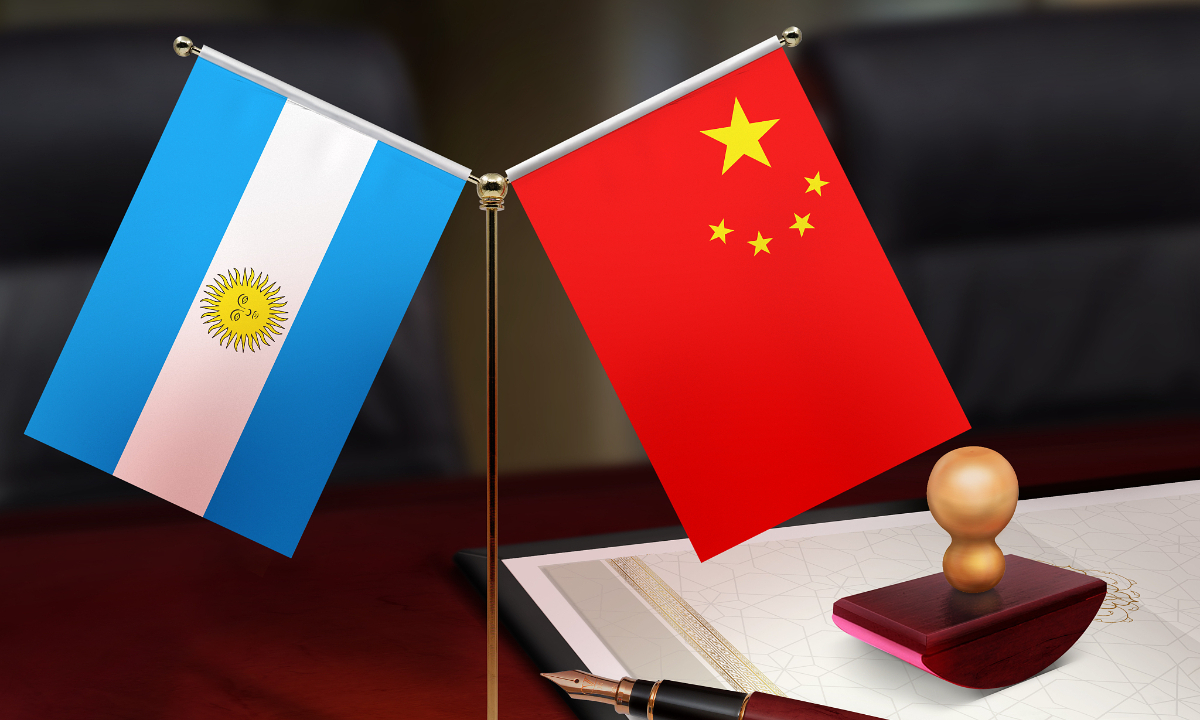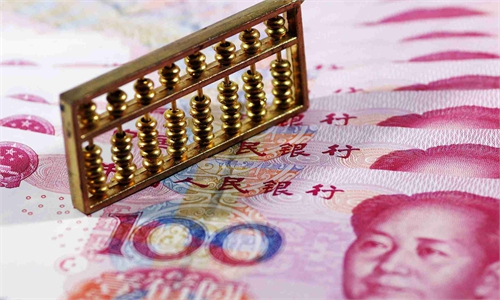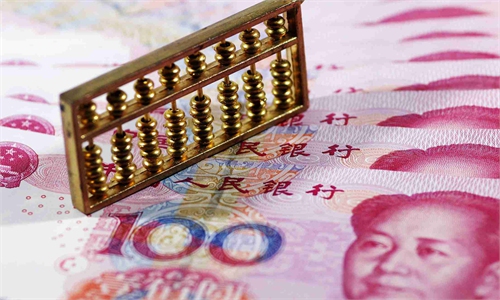China and Argentina sign cooperation plan to jointly promote construction of Belt and Road
Initiative not ‘hollow’ but takes concrete measures to benefit local people

China Argentina Photo:VCG
China and Argentina on Friday signed a cooperation plan in Beijing to jointly promote the construction of the Belt and Road Initiative (BRI), a move that will further deepen bilateral economic and trade cooperation.
A Chinese expert said that the cooperation plan will be of "exemplary significance" to major Latin American countries that have not yet signed the Memorandum of Understanding (MoU) with China, and the plan also highlights the fact that BRI is an international public product with concrete measures that benefit local people.
The two sides will deepen cooperation in the fields of infrastructure, energy, economy and trade, finance, and people-to-people and cultural exchanges, according to the release posted on the official website of China's National Development and Reform Commission (NDRC) on Friday.
The cooperation plan is of great significance to the deepening of political mutual trust and strategic alignment between the two countries, and is conducive to promoting practical cooperation between the two countries in various fields, said NDRC.
The signing of the agreement is an implementation of the MoU signed between China and Argentina in 2022, and will further strengthen cooperation under the BRI in various fields, with more plans and projects expected, Zhou Zhiwei, an expert on Latin American studies at the Chinese Academy of Social Sciences, told the Global Times on Friday.
China and Argentina have signed an MoU on the BRI, according to a joint statement issued in February of 2022 after a meeting between top leaders of the two countries.
The two sides laid a framework for sustainable development and inclusive economic cooperation, so as to further promote actions and projects for deepening, innovating, and diversifying their economic relations and enhancing regional connectivity, according to the Xinhua News Agency.
They also studied bilateral trade cooperation and agreed to continue to expand trade, enhance financial support for China's export settlements to Argentina and actively encourage trade diversification, the statement said.
"The cooperation plan is of exemplary significance to major Latin American countries such as Brazil, Colombia, and Mexico that have not yet signed an MoU with China," Wang Youming, director of the Institute of Developing Countries at the China Institute of International Studies in Beijing, told the Global Times on Friday.
The signing of the cooperation plan with Argentina shows that the BRI is not a hollow initiative, but an international public product with substantial content, specific deployment and planning, Wang noted.
The signing of the cooperation plan plays an important role in promoting bilateral relations and bailing out the Argentine economy, Wang added.
The cooperation plan was reached as Argentine Economy Minister Sergio Massa made a trip in China, after he reportedly landed in Shanghai on Tuesday, and then headed to Beijing for meetings with Chinese officials including those from the General Administration of Customs (GAC), Ministry of Commerce (MOFCOM) and People's Bank of China (PBC) in Beijing.
PBC said on Friday that the two sides exchanged views on issues such as the economic and financial situation and the promotion of financial cooperation, while GAC said that topics such as the exports of Argentine agricultural and food products to China, and deepening customs inspection and quarantine cooperation are on the agenda.
On Thursday, Chinese Minister of Commerce Wang Wentao met with Massa in Beijing. Wang said China is willing to work with Argentina under the strategic guidance of the two heads of state to promote economic and trade exchanges and dialogues at all levels, deepen multilateral and bilateral pragmatic cooperation, and push for greater development of the China-Argentina comprehensive strategic partnership.
In addition, Massa also visited some companies including those in the field of power and lithium mining. Media reported that the two sides conducted in-depth discussions on topics including RMB settlements when visiting the lithium mining company.
According to media reports, Massa will seek an expansion of the nation's currency swap line during his trip to China.
Cooperation in the financial sector continues to be a focus, and it is an urgent matter for Argentina to continue obtaining a market share in China, which will help the Latin American country hedge against diminishing dollar reserves amid the current global de-dollarization push, Zhou said.
Argentina and China signed a 70 billion yuan ($9.9 billion) swap line agreement in 2009 and expanded it to 130 billion yuan in 2020. In January this year, the two countries formalized the expansion of a currency swap deal.
In April, Argentina reportedly announced plans to use the Chinese currency to pay for goods imported from China amid an emerging de-dollarization wave pushed by countries and regions in order to reduce reliance on the US dollar.



